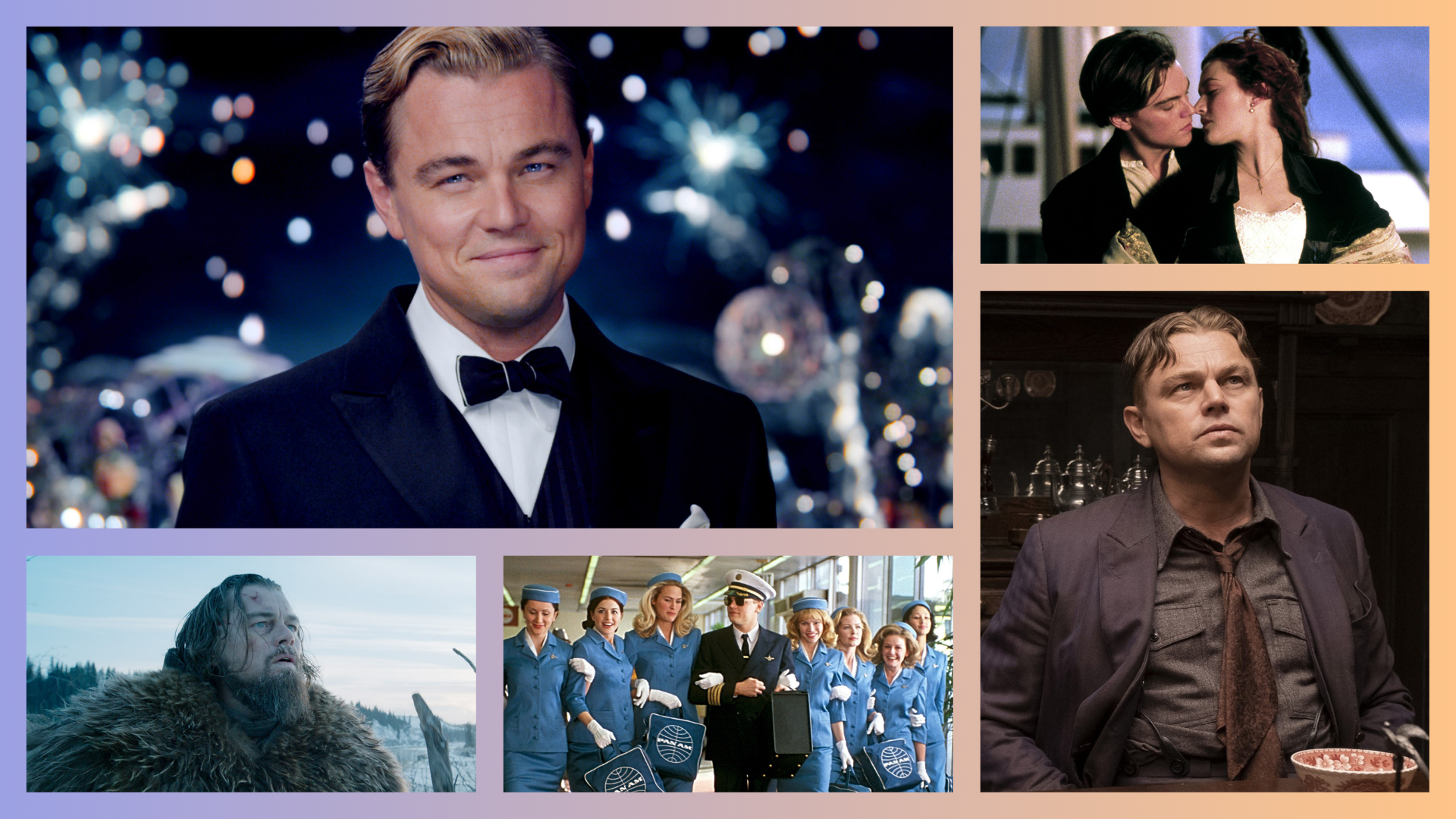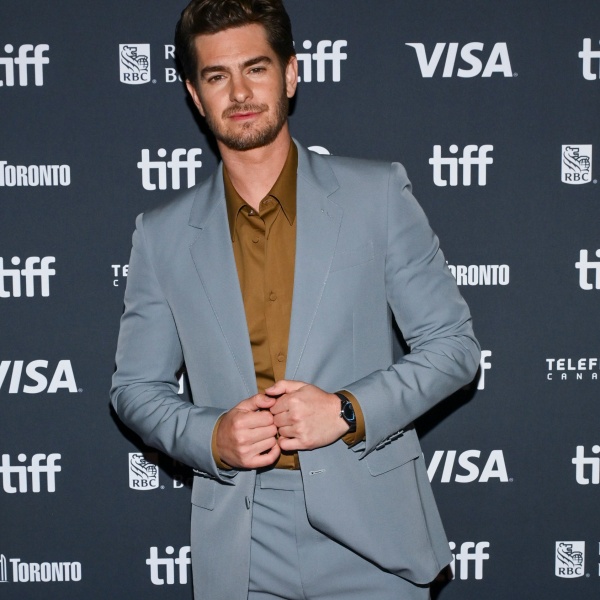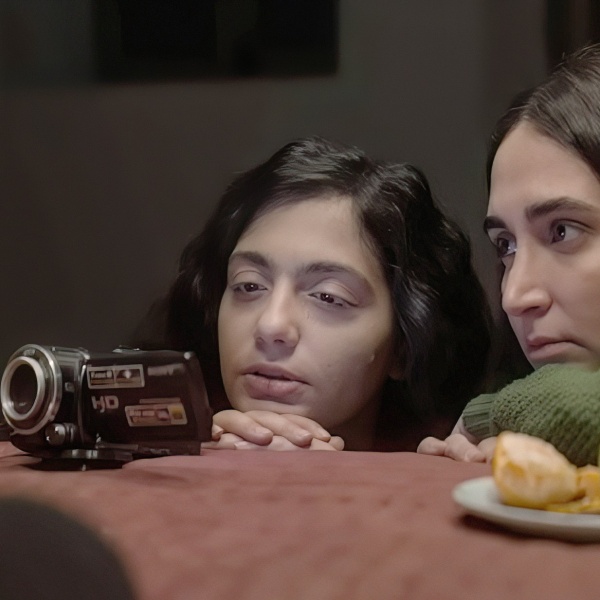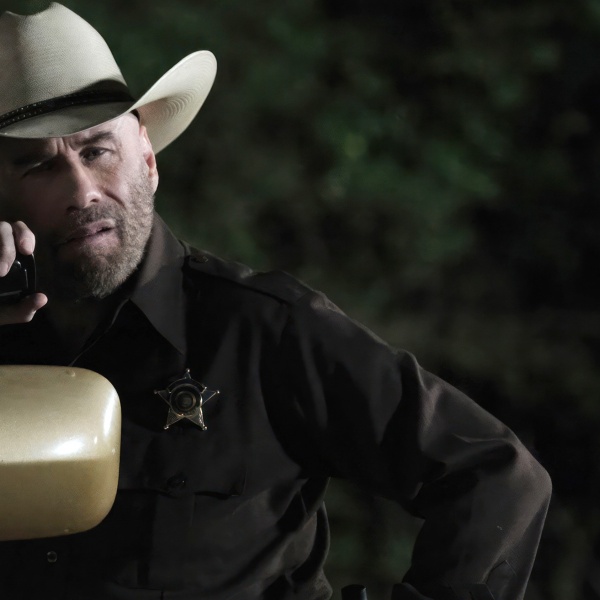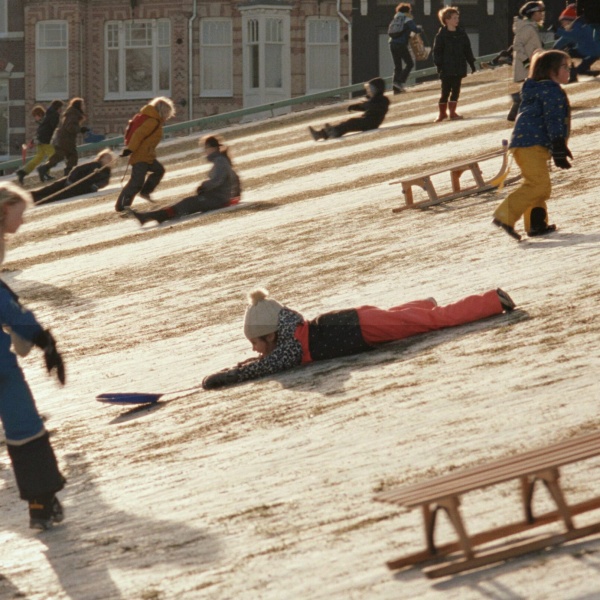With five Academy Award nominations and a win for “The Revenant,” Leonardo DiCaprio has established himself as a Hollywood icon — vaulting from his first starring role in the sci-fi horror “Critters III” to challenging parts with major auteurs, including Quentin Tarantino, Martin Scorsese, Christopher Nolan, and Alejandro G. Iñárritu, while championing humanitarian issues through his prolific environmental activism.
In “Once Upon a Time… in Hollywood,” DiCaprio played a washed-up movie star at the end of his tether, which is perhaps the biggest stretch of the actor’s filmography considering his esteemed pedigree and enviable body of work. With nearly $7 billion dollars of global box office to his name and a list of roles that prove his selective instincts each time out, DiCaprio is one of the few movie stars working today who always delivers something worth seeing.
That even includes Adam McKay’s 2021 end-times satire for Netflix “Don’t Look Up,” which IndieWire’s David Ehrlich gave a “C-” and saw DiCaprio portraying a flustered astronomy professor heralding a planet-annihilating comet to deaf ears. Or take Baz Luhrmann’s blithely mismatched “Great Gatsby” adaptation from 2013: an overly glittery critical misfire that still saw DiCaprio’s majorly depressed fat cat yanking at audiences’ heartstrings opposite Carey Mulligan. Heck, we’d even watch Leo in the titular role of Clint Eastwood’s baffling “J. Edgar” again — if only for the opportunity to stretch our flummoxed lower faces at the 2011 biopic’s jaw-dropping awfulness.
Lesser works aside, DiCaprio is one of Hollywood’s last remaining movie stars and the boys are back in town, with him and Scorsese once again teaming up for a new movie. The buzzy “Killers of the Flower Moon” stars DiCaprio in a more than three-hour Western epic about a string of Oklahoma murders in the Osage Nation from 1921 to 1926; DiCaprio appears with Lily Gladstone, Robert De Niro, Jesse Plemons, Brendan Fraser, and many more. It got a “B+” from IndieWire, and has earned $154 million at the global box office to date. You can read Ehrlich’s complete review here.
To honor the film’s release, and its subsequent march to awards season, IndieWire looks back on DiCaprio’s 20 best performances. Entries are ranked with our condolences to “The Man in the Iron Mask.” Maybe next time, Philippe.
With editorial contributions by Kate Erbland and Jim Hemphill.
[Editor’s note: This article was first published in August 2019 and has since been updated.]
-
20. “Marvin’s Room”

Image Credit: ©Miramax/Courtesy Everett Collection Adapted by writer Scott McPherson from his play of the same name, “Marvin’s Room” would be little more than a forgettable family melodrama if not for director Jerry Zaks’ crackling cast. DiCaprio is snappy and unpredictable as 17-year-old Hank, the disgruntled son of Meryl Streep’s Lee. The worn-thin mother finds herself struggling to cope when her estranged sister, Diane Keaton’s Bessie, is diagnosed with cancer. Although Keaton was honored with a Best Actress nod at the Oscars, the 1996 film has gone underseen in recent years — particularly when you consider it also boasts performances from Robert De Niro, Hume Cronyn, Margo Martindale, and more. —AF
-
19. “Gangs of New York”

Image Credit: ©Miramax/Courtesy Everett Collection There’s been a lot of talk about how “Killers of the Flower Moon” is Scorsese’s first Western, and while that is technically accurate he did go full Sergio Leone in this “Eastern” that creates a mythology for the birth of New York every bit as bold and deliriously entertaining as Leone’s mythmaking in “Once Upon a Time in the West.” Scorsese had dipped his toe in epic waters before, but with “Gangs of New York” he took the scale of his work to a whole new level, building New York on Cinecittà’s enormous backlot and applying nearly 30 years of research toward his grandest vision to date. Daniel Day-Lewis’ iconic performance as Bill the Butcher is what people remember most about the film, but it was another actor who would have the greater impact on Scorsese’s career, as “Gangs” marked the first time the director collaborated with Leonardo DiCaprio. DiCaprio’s bankability would enable Scorsese to continue working in the epic mode on “The Aviator,” “The Wolf of Wall Street,” and now “Killers of the Flower Moon,” auteur films mounted with resources unseen since the days of David Lean. —JH
Read IndieWire’s Martin Scorsese Films Ranking
-
18. “The Great Gatsby”

Image Credit: ©Warner Bros/Courtesy Everett Collection “The Great Gatsby” is one of Baz Luhrmann’s most interminably exhausting films, so spectacularly missing the point of F. Scott Fitzgerald’s jazz age romance you’d be forgiven for mistaking it for an ill-themed frat party. Still, DiCaprio makes for a pitch-perfect Jay Gatsby: haunted by his lavish loneliness and frying under the glare of the green light at the end of literature’s most godforsaken dock. Leo couldn’t ask for a better Daisy Buchanan than Carey Mulligan, and the casting of Tobey Maguire as Nick Carraway is quietly inspired. (Who better to play an overshadowed second-stringer than the dude who had just been replaced as Spider-Man?) The actor champions the best parts of the film, wearing Catherine Martin’s Oscar-winning costumes with earnest ease and embodying just enough old school cool to make this Lana Del Rey-backed misfire feel truly cinematic at times. Plus, the internet got an evergreen Leo/fireworks gif out of the ordeal, and that has to count for something. —AF
-
17. “Celebrity”

Image Credit: ©Miramax/Courtesy Everett Collection A year after “Titanic,” DiCaprio got saddled with a meta bit part in one of Woody Allen’s worst films. (Seriously, the self-serving exploration of entertainment journalism is as annoying as it is shallow and reason enough to turn on the filmmaker sans sexual abuse allegations.) Flecks of Jack Dawson pop through Leo’s boyish A-lister character, Brandon Darrow, particularly in the opening scene where we see the pampered movie star defending his girlfriend (Gretchen Mol) from a mob of fans and press like he’s ushering her to one of Hollywood’s last remaining lifeboats. But it’s the insidious turn that comes soon after, when Brandon reveals himself to be an abusive piece of shit with a burgeoning god complex, that’s noteworthy. This was one of the first times audiences got to see Leo tap into his dark side: a perversely on-the-nose performance capturing the perils of ascending stardom just as Leo himself was ascending. —AF
-
16. “Killers of the Flower Moon”

Image Credit: ©Apple TV/Courtesy Everett Collection While much has been made of filmmaker Martin Scorsese’s decision to re-orient David Grann’s non-fiction book of the same around DiCaprio’s character — Ernest Burkhart, a war veteran who finds himself (or allows himself?) to become part of the vicious planned killing of members of the Osage Nation, including his own wife — for his sprawling film version, the actor at least gives his damnedest to the role. It’s a part that requires DiCaprio to take big swings that occasionally pay off (watching him face off with Jesse Plemons, as no-nonsense agent Tom White, for instance, is thrilling) but often baffle (the perpetual question of Ernest — does he even know what he’s doing? — would be a doozy for any actor). Nevertheless, DiCaprio is compulsively watchable, even when we’re not sure where it’s all going next. —KE
-
15. “Inception”

Image Credit: ©Warner Bros/Courtesy Everett Collection Even as a lead actor, it’d be easy to get lost in the sauce with a film as (needlessly?) complex as Christopher Nolan’s “Inception.” But DiCaprio turns Dom Cobb into a steadfast emotional center for a multi-layered movie that’s first and foremost about a man grieving his late wife — firmly holding the audience’s attention through spinning hallways, avalanche gunfights, collapsing cityscapes, and more mind-bending tributes to VFX wizardry. Leo is propped up by an all-timer cast of 2010s A-listers (Joseph Gordon-Levitt! Tom Hardy! Cillian Murphy! Elliot Page! Ken Watanabe! Michael Caine!) and a perfectly stiffened “Men in Black”-esque suit. But it’s his romantic chops as Marion Cotillard’s tortured widower that kept us breathless until that spinning-top cliffhanger. More than a decade after the fact, we’re still wondering what became of the pair’s tragic love lost in a dream. —AF
-
14. “This Boy’s Life”

Image Credit: ©Warner Bros/Courtesy Everett Collection Martin Scorsese may have saved Leo from a life of “Titanic”-ish romantic leads with “Gangs of New York,” but it was Robert De Niro who got him the part. And that’s thanks to De Niro’s work with the then 17-year-old DiCaprio in “This Boy’s Life”: the 1993 film adaptation of Tobias Wolff’s coming-of-age memoir. DiCaprio plays the titular part opposite the “Taxi Driver” star’s petulant abusive father figure and gives a performance that isn’t exactly revelatory, but he offers a strong enough scene partner to De Niro that it made his soon-to-be stardom practically inevitable. A painfully accurate depiction of familial discontent (and possibly triggering to survivors of domestic violence), the finale fight scene demonstrates a nauseating truth: many of America’s most destructive wars have been waged in suburban kitchens. —AF
-
13. “What’s Eating Gilbert Grape”

Image Credit: ©Paramount/Courtesy Everett Collection A 19-year-old DiCaprio earned his first Academy Award nomination for “What’s Eating Gilbert Grape”: Lasse Hallström’s soulful adaptation of the book of the same name by Peter Hedges, who also wrote its screenplay. Plenty of cinephiles have soured on actors playing differently abled characters in the years since the 1993 drama became a critical darling, and there are certainly moments of DiCaprio’s performance that border on caricature. (Outright recommending it is certainly…a stretch.)
Still, Arnie is indisputable evidence of DiCaprio’s early-days acting instincts, and he’s brilliantly paired with Johnny Depp as the title character. To prepare for the role, DiCaprio visited a living community for differently abled teenagers and gave touching interviews about empathy and understanding at the time. Fun fact: Leo beat out Christian Bale for the role. —AF
-
12. “Catch Me If You Can”

Image Credit: DreamWorks/Courtesy Everett Collection Steven Spielberg’s snazzy adaptation of the autobiography of master of deception Frank Abagnale features a brilliantly shifty (and quite debonair) Leonardo DiCaprio as a man who worked as a doctor, lawyer, and pilot — all before he turned 18. With Tom Hanks’ FBI agent Carl Hanratty always one step behind him, DiCaprio compellingly nests several performances in one. With each new identity he puts on, DiCaprio delivers one carefully calibrated impersonation after another, making the many faces he wears as hypnotic to the audience as to the people in Frank’s orbit falling for his smarm and cajolery. —RL
-
11. “Revolutionary Road”

Image Credit: Shutterstock To watch Sam Mendes’ stately Richard Yates adaptation “Revolutionary Road” is to witness the crumbling of a marriage in real-time, with Mendes’ then-wife Kate Winslet sparring with DiCaprio amid the dreary ennui of 1950s suburban Connecticut. Imagine if Jack and Rose survived the sinking of “Titanic” and shacked up to pursue the American dream, only to discover the big fat lie at its core, and you might get some sense of this nightmarish experience. As boozing, womanizing, chain-smoking Frank Wheeler, DiCaprio conveys repression and regret with a furtive glance and the flick of a cigarette. —RL
-
10. “The Basketball Diaries”

Image Credit: Shutterstock At just 21, DiCaprio tackled the moving role of heroin-addled basketball star Jim Carroll in director Scott Kalvert’s adaptation of Carroll’s autobiography. DiCaprio portrays the damage and frenzied desperation of drug addiction with aplomb, opposite a terrific cast including Lorraine Bracco and Mark Wahlberg. This is uneasy territory for any actor, but DiCaprio’s ability to pull it off without any distracting showboating provided a window into the delicate maneuvering that would continue to evolve over the course of his career. —RL
-
9. “Romeo and Juliet”

Image Credit: Shutterstock DiCaprio is swooningly good in Baz Luhrmann’s 1996 adaptation of the William Shakespeare classic, leveraging his boy-next-door good looks and debonair charm to embody the ill-fated Romeo Montague, opposite Claire Danes as his doomed lover. With “Romeo and Juliet,” he was, at the time, the epitome of the 1990s teen heartthrob, firing on all cylinders in a charismatic, devastating performance that announced DiCaprio’s stardom to the world. —RL
-
8. “Titanic”

Image Credit: ©20thCentFox/Courtesy Everett Collection We’ll never let go, Jack. DiCaprio’s most beloved romantic role in James Cameron’s equally adored 1997 historic drama is an inarguable cliche by now. (A diamond-in-the-rough painter of nude models with a hidden talent for Irish dance? Who saves our heroine from a suicide attempt on the back of an ocean liner? Puh-lease.) But to deny Leo’s sparkling chemistry with Kate Winslet — an unflattening champagne flute of mutual fondness, tragic timing, and opposites-attract steaminess — is to disrespect one of cinema’s landmark castings. Whether he’s gleefully running down British streets with Danny Nucci’s Fabrizio or staring daggers at Billy Zane’s Cal, Leo made his mark as a permanent avatar of boyish charm on this unsinkable ship. —AF
-
7. “The Departed”

Image Credit: Warner Bros. It’s thanks to DiCaprio’s gritty portrayal of Boston police academy rookie Billy Costigan that, when it comes to Martin Scorsese’s remake of the 2002 Hong Kong film “Infernal Affairs,” you just can’t help pronouncing it “The Depaaahted.” DiCaprio’s Billy endures ups and downs on a road to corruption that, quite memorably, ends with an unexpected bang. This gruff, testosterone-fueled performance helps define this Best Picture winner’s tough atmosphere as much as Scorsese’s own investment in it, and marked a key turning point in the maturation of the actor’s screen presence. —RL
-
6. “Once Upon a Time… in Hollywood”

Image Credit: Sony DiCaprio gives his most physically comic performance to date in his second collaboration with Tarantino, a world apart from his evil turn in “Django.” As perennially sotted Western star Rick Dalton, DiCaprio brings a touch of pathos to his character’s complicated journey as he ambles through the easy, breezy Los Angeles of 1969 — where disaster loomed just around the corner. Struggling to find outlets for his talents in an ever-changing industry, Dalton is a wistful figure who can’t tell if he’s actually in decline, and allows the actor to give his role a touch of melancholy that feels entirely new for him. —RL
-
5. “Shutter Island”

Image Credit: Paramount/Kobal/Shutterstock Scorsese’s closest approximation to a horror film, “Shutter Island” offers a showcase for DiCaprio as haunted U.S. Marshal Teddy Daniels. Portraying a man chased by a dark past that is ineffably out of reach, DiCaprio keeps us precariously on the razor’s edge between the real and the imaginary, brooding through Scorsese’s hallucinatory set pieces to create a picture of anguished masculinity. The movie’s eerie, Val Lewton-inspired atmosphere gave the actor the chance to channel a degree of psychological turmoil that he had never shown before onscreen. —RL
-
4. “Django Unchained”

Image Credit: Columbia/The Weinstein Company/Kobal/Shutterstock DiCaprio’s willingness to play the bad guy was a risk, but he’s committed to portraying a kind of irredeemable awfulness as beguiling Candyland plantation owner “Monsieur” Calvin J. Candie in Quentin Tarantino’s revisionist slave story “Django Unchained” — so committed, in fact, that the actor gashed his hand open during a take and still didn’t break character. DiCaprio managed to avoid getting typecast as the villain in subsequent performances. —RL
-
3. “The Revenant”

Image Credit: 20th Century Fox DiCaprio’s turn in Alejandro G. Iñárritu’s man-versus-nature epic is a barbaric yawp of a performance, plunging the actor into everything from pitiless conditions in Calgary, Argentina and the U.S., to the innards of a bear corpse. The actor may not be known for physically daunting transformations, but “The Revenant” allowed him to go to new extremes as an actor even as he dazzled with the kind of masculine confidence for which he’s always been known. He won his long-overdue Academy Award for Best Actor for his performance as a frontiersman struggling against the elements. As a bracing man-versus-nature odyssey, the movie became the ideal vessel for DiCaprio’s ecologically conscious activism, which he acknowledged in his Oscar speech. —RL
-
2. “The Aviator”

Image Credit: Warner Bros. DiCaprio stars as billionaire and aviation tycoon Howard Hughes in Scorsese’s Hollywood epic, tracing the Tinseltown magnate’s decline on the way to Shakespearean levels of power-grubbing and greed. The actor tragically portrays Hughes’ unraveling into an obsessive-compulsive disorder that would alienate those closest to him. —RL
-
1. “The Wolf of Wall Street”

Image Credit: Shutterstock Charting stockbroker Jordan Belfort’s (DiCaprio) rampant, raucous descent into corruption and self-destruction beginning in the late-1980s, “The Wolf of Wall Street” is director Martin Scorsese’s finest collaboration with his 21st-century leading man. As Belfort, DiCaprio delivers both his funniest and most heartbreaking performance as a megalomaniac for whom the road of excess leads to the palace of wisdom — the hard way. However, while Belfort is a contemptible figure who epitomizes the worst tendencies of capitalist greed, DiCaprio takes on the radical task of injecting sympathy into the man all the way through, transforming this scheming moneymaker into the ultimate paradox of our troubled times. —RL
